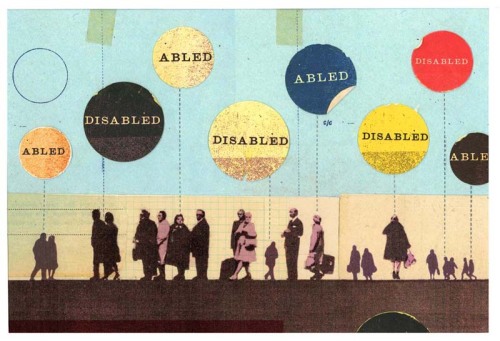Discrimination is only discrimination if you end up being sacked
The study apparently says that many people with MS put off telling their bosses (and so receiving appropriate accommodations at work, which might help them to manage their MS) because they are afraid they will be discriminated against.
Dr Simmons says that fear is unfounded, because “only 15 per cent of people [left] their jobs because they were sacked”.
I assume this means that that’s 15% of people leaving their jobs, and not 15% of people who told their bosses they had MS. If it’s the latter, that’s actually a significant amount of discrimination – about 1 in 6! But even if it’s the former, that seems to me to be fairly significant. It may be that not many people are getting sacked because of their MS, but it does tend to support the idea that it is a realistic possibility that you will be sacked if you tell your boss you have MS. In other words: the fear of discrimination (eventuating in unemployment) is hardly unfounded!
Screen Reader Access to SharePoint
As many screen reader users have found out the hard way; Microsoft’s SharePoint service is not very screen reader friendly. It can be navigated, but is clearly not understandable for your average user. Microsoft’s apparent lack of interest in adhering to w3c standards further complicates the situation. Despite this, many of us have to use SharePoint in our daily work. So with that said, I am writing this article to share with other screen reader users some tricks, tips and general information I’ve gathered over time while working on the “SharePoint issue”. I have primarily been working with the 2003 and 2007 editions of SharePoint, but most of these items hold true with 2010.
Museums and other archival institutions typically display the extraordinary rather than the ordinary, the First Lady’s inauguration ball gown rather than her J.Crew shorts. But because of the implausible convergence of racial, gender, sexual, class, and language barriers that confront non-White and working women, their lives and their accomplishments were not deemed extraordinary in their time. The material evidence of these lives not considered important enough to save or to study. Museums and other archival institutions that privilege white middle and upper class women’s experiences collude in the ongoing marginalization and erasure of the material cultural histories of minoritized American women.
Call for submissions: /Slant/Sex/
This is a call for bold, honest investigations of the sexual female/trans self that polite society has yet to fully embrace.
We particularly encourage submissions from women of color, older women, queer women, women with disabilities, and transgender/two-spirit/intersex/gender nonconforming folks.
Experiences of Transgendered Profs a Case Study in Sexism
In an excerpt published in the Australian newspaper The Age, The Hidden Brain author Shankar Vedantam discusses the different post-transition experiences of transgendered Stanford professors Ben Barres and Joan Roughgarden. Unsurprisingly, they paint a depressing picture of the prevalence of sexism even in the supposedly egalitarian world of university research.
Where ever you are is where I want to be: Crip Solidarity
What does crip solidarity look like? Between crips?
We are traveling, trying to track down food. My chair can’t go into this restaurant, your dog isn’t allowed in that restaurant; so we will order in. You can’t fly to the meeting, so we will come to you—all of us. They won’t let you go to the bathroom because they say you’re “too slow”, so we will demand they do—and make them wait for you—together. Sometimes we are comrades, sometimes we are strangers, but we will stay together. We move together.
I know what it is like to be left behind, left out, forgotten about. I know you know as well. We vow to not do that together, to each other.
Canada: Council of Canadians with Disabilities Chairperson’s Update
The month of April is an important anniversary month for the disability community, and indeed all equality-seeking Canadians, because on 17 April 1985 Section 15, the Equality Section of the Charter of Rights and Freedoms, came into force. Governments had been given a grace period, where they had the opportunity to bring legislation and policies into conformity with the standard set by Section 15. As we all know, the Governments of the day had a very limited vision of what was required of them and few changes were made. When Section 15 came into force, Canada’s equality-seeking community began to make use of Section 15 as a new tool for eliminating barriers. CCD, and other groups in the disability community, began to undertake test case litigation, based on Section 15 and other articles of the Charter, to create equitable outcomes for Canadians with disabilities.
Headlines:
Discovery could help treat spinal injuries: U of A researchers uncover trigger that causes muscles to move without signal from brain
Canada: Schools lack access to mental-health professionals, report says


